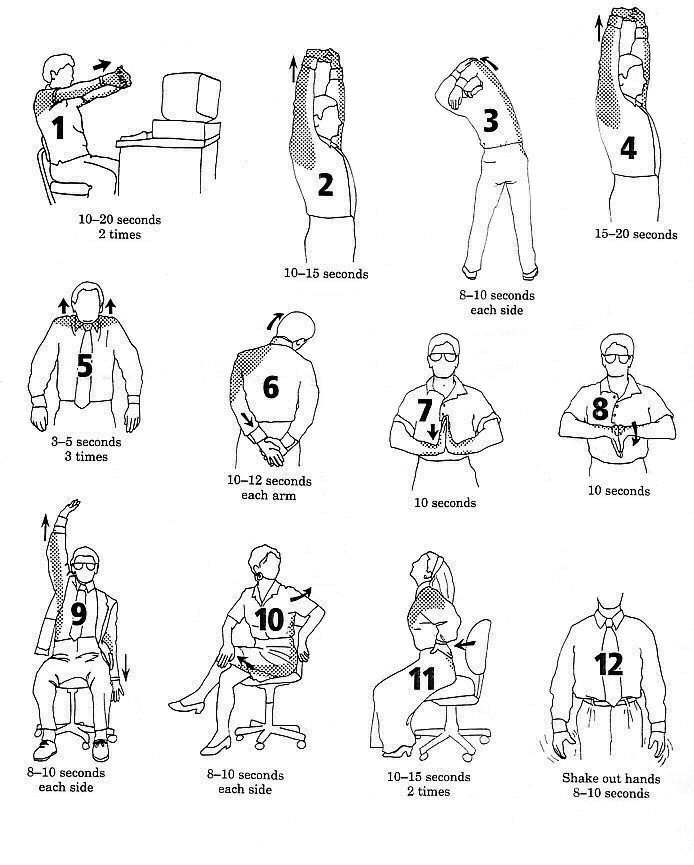“I’m sorry, what did you say?”
“Could you repeat that, please?”
Ever found yourself coming out with one of these embarrassing lines, not because you couldn’t hear, but because you weren’t really listening?
Listening skills aren’t just good manners, they’re actually good business too. The best leaders don’t just hear what their employees say, they actively listen, then take action. Better communication also reduces stress!
To get ahead, you’ll need to put in some practice. You’ll need a buddy for two of them, but they’re well worth the effort!

Angry boss with megaphone screaming at employee in office
1. Travel Agent Exercise
Sometimes when we’re not really listening, we can wing it using prior knowledge of the subject under discussion.
But what will you do if the person talking hasn’t specifically mentioned the main topic and is just talking around it?
The Goal
This exercise will help you to listen carefully, so that whatever topic is under discussion and however vague the speaker is being, you can stick with the program.
How to Do It
A classic example is to have a “talker” speak for about three minutes about their dream vacation. They’ll tell you various details, including what kind of weather they like, what they would like to do and the things they would like to eat. But crucially, they won’t tell you where they would like to go.
Your task is to summarize back to them what they just said and make a recommendation of a destination to visit.
With no prior knowledge to draw on, you’ll be forced to actively listen to what they say, noting what you may have ordinarily considered being more minor details. Basically, it’s all about them and their needs, not about you and what you know.
After you’ve summarized their needs and given your suggestion, they can then give you feedback on how well you did. You can then swap roles and repeat.
2. Empathy Building Exercise
Empathy, the feeling of truly caring about and understanding what another human being is going through, is central to active listening.
The Goal
The key question is not the words they are saying but thinking about how they feel. We need to listen and respond in such a way that demonstrates a genuine interest in the other person – this can’t be faked.
How to Do It
Genuine empathy is something that has to be felt, not put on.
When listening, paraphrasing is not the complete answer but can be a good tool to help the other person know that you are truly listening to them. This means repeating back to them your understanding of what they have said.
Expressions like, “I think you’re saying that…” or “From what you’ve said, I understand that…” can show that you’re really listening and want to understand their perspective.
Of course, we all come with our own biases and pre-existing ideas, so it’s important to be open to the fact that their experiences and feelings may be very different to our own.
Practice this by asking yourself, “How would I feel if I were going through this?” Allow yourself a moment to actually experience the feeling, not just run words through your mind. This genuine fellow-feeling will come through in your responses.
3. Stop Interrupting Exercise
If you’re one of those people for whom listening is just a case of biding your time until it’s your chance to speak, then give this exercise a whirl.
The Goal
It will switch the focus from you and what you want to say, to where it should be – on the person currently speaking. You’ll get your chance – but if you listen you may learn something very useful!
How to Do It
Challenge yourself to sit through an entire meeting or conversation without speaking unless spoken to. Be careful that this doesn’t come across as rude – this is not a vow of silence. Just a determination to focus on listening rather than contributing.
If you have an amazing idea that you’ve got to share and are scared you’ll forget, by all means, write it down and share it later!
But first, learn to fight the urge to blurt. You just might be amazed by how much you used to miss when you were simply waiting for your turn to talk.
4. Back-to-Back Drawing Exercises
Don’t worry, we’re not asking you to create the next Mona Lisa. However shaky your art skills are, it doesn’t matter – it’s your engaged listening skills that are under development here.
The Goal
This exercise is a lot of fun but will train your brain in listening, asking clarifying questions and other important components of active listening that transfer into your working life.
How to Do It
Sit back-to-back with your partner. One of you has a simple picture they’re going to describe. The other has a pad and pen. Without ever getting sight of the picture, you have to draw it – simply by listening to your partner’s instructions.
This is an activity that requires total focus. But isn’t that what we often have to do at work?
The person we’re listening to has a very clear idea in their mind they want to convey. Through active listening, you’ll be able to accurately understand that idea and follow through, just like drawing the picture.
The Takeaway: Active Listening Exercises Work!
Active listening is not for people without ambition, whose jobs revolve around waiting for orders. They’re for all of us – whatever stage we’re at in our career or whatever we’re trying to achieve.
The best thing about active listening – it helps you to genuinely connect with your colleagues, friends, and managers. It’s not fake – it dignifies people, and give us a chance to get over ourselves a bit.
Give these active listening exercises a go and you may be surprised at how well people respond!
Along with active listening strategies, coaching can be a great way to maximize the potential of your career.
Click here to read about Performance Coaching and how it could benefit you.


 (5 votes, average: 4.20 out of 5)
(5 votes, average: 4.20 out of 5)









